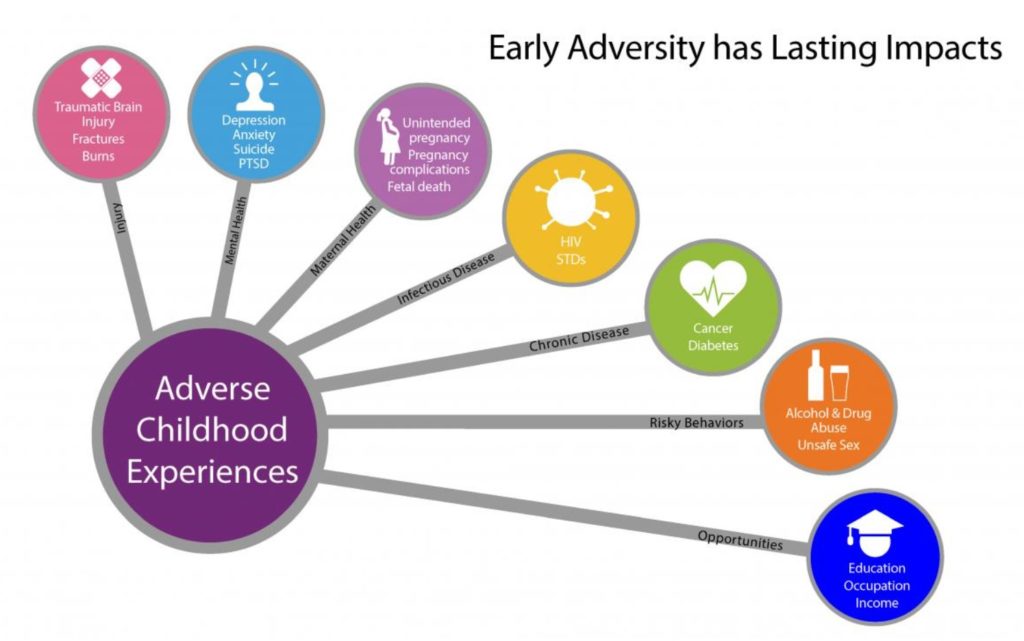
Child and Family Well-Being Learning Cohort
The Child and Family Well-Being Learning Cohort is hosted by the National Governors Association Center for Best Practices (NGA Center) and Casey Family Programs. Through the end of the year, the network will join governor’s office representatives, state human services executives, child welfare leaders, education leaders and others in a collaborative network to coordinate strategic solutions to preventing child abuse and neglect and ensuring child and family well-being.
2021 Child and Family Well-being Learning Cohort
As families and communities face continued uncertainty due to the COVID-19 pandemic, nine states have joined a network that will bring together Governors’ offices, child welfare leaders, state human services and education officials, and nonprofit partners to collaborate on strategies that improve and support child and family well-being.
This network builds off the success of a previous learning cohort that assisted a number of states in developing partnerships between education and child welfare agencies to help meet the needs of children and families while schools operated virtually.
The new network will enhance states’ efforts by assembling a cohort of state leaders committed to enhancing child and family well-being so they can collaborate and jointly assess state needs, explore challenges affecting multiple states, and strategize to achieve results-driven improvements.
2021 Network States
- Arkansas
- Connecticut
- Delaware
- Hawai‘i
- Iowa
- Kansas
- New York
- Utah
- Virginia
- West Virginia
The ongoing health and economic challenges exacerbated by COVID-19 prove we cannot entirely rely on existing systems like those of mandated reporting, in-school surveillance and the old ways of doing business. These systems were not built to alleviate the stress on families, yet we know safe and stable environments and relationships can help every child to thrive. The Child and Family Well-Being Learning Cohort provides state leaders an opportunity to work together toward building more effective and inclusive partnerships to ensure that all children and families have access to the opportunities and supports they need to thrive.
David Sanders, Executive Vice President, Casey Family Programs
As part of the network, participating states will:
- Engage with a collaborative network of innovative state leaders to develop and coordinate solutions that improve child abuse and neglect prevention and support child and family well-being;
- Enjoy access to innovative tools designed by peers in the field and be paired with experts engaged by the NGA Center and Casey Family Programs; and
- Receive in-depth technical assistance tailored to state-specific goals, including workshops, webinars, facilitated peer-to-peer learning and more.
The cohort will remain open to additional states for participation and will continue to meet regularly on a monthly basis throughout 2021. States interested in the cohort or similar policy areas should contact Belle Cuneo (icuneo@nga.org).
2021 Child and Family Well-Being Governors’ Summit
State Presentations
Connecticut
Connecticut prioritized improving and strengthening the state’s approach to delivering services to children and families by:
- Focusing on improving adoption permanency rates, particularly for children of color,
- Developing strategies to close virtual education achievement gaps,
- Building child welfare workforce capacity, and
- Identifying opportunities to support families in navigating services and supports.
Delaware
Delaware focused on remodeling the reporting process for child abuse and neglect by:
- Expanding virtual reporting platforms for families and mandatory reporters in conjunction with local education systems and child protective services to better identify family needs;
- Identifying alternatives to reporting hotlines, developing a resource app for children and parents to connect to services; and
- Designing plans for installation of social service kiosks in community settings, like schools.
Hawai‘i
Hawai‘i embraced a multigenerational approach to reducing poverty by identifying opportunities to strengthen community support for services by:
- Formalizing the Family Resource Centers construct and assembling a legislative foundation for these resource centers;
- Establishing a cohesive implementation plan for the expansion of Family Resource Centers; and
- Validating a vehicle to prioritize and incorporate perspectives of youth and those with lived experiences into the delivery of supports and services that are available to families.
Kansas
Kansas concentrated on connecting families to resources and supports before formal allegations of abuse and neglect are reported and reimagining service delivery by:
- Shifting the traditional child abuse and neglect reporting paradigms from mandated reporters to mandated supporters;
- Working in tandem with local school systems and superintendents and identified school resource officers to help connect families to meaningful supports early.
- Mobilizing this work to the next level through a collective multidisciplinary design that can be replicated throughout the state.
Virginia
The Virginia team turned its attention to barriers for service delivery as the main preventive factor in combatting child abuse and neglect by:
- Establishing an integrated system of care that leverages services and supports to increase family independence and well-being;
- Targeting resources to address poverty-adjacent factors;
- Using data to design metrics to analyze factors that contribute to poverty, such as inadequate housing and inadequate medical care; and
- Identifying gaps in service delivery that could be addressed through upstream interventions and referrals for social services supports instead of through the child welfare system.
West Virginia
West Virginia has worked to support family independence, promote child and family well-being, increase access to services for underserved families, by:
- Integrating multiple systems of care and creating alignment between services and local community partnerships, such as parenting classes and food pantries;
- Identifying commonalities and aligning purposes in programs and initiatives;
- Reimagining website design for improved user experience and access to services; and
- Modernizing communication strategies to engage with agency workers as well as stakeholder partners.
Panel Discussion
The 2021 Child and Family Well-Being Governors’ Summit featured a panel of Governors’ Policy Advisors to discuss their Governors’ plans and priorities to holistically improve the lives of children and families. Panelists included:
- Alonna Berry, Policy Advisor and Statewide Trauma-Informed Care Coordinator for the Office of Delaware Governor John Carney
- Dakota Anderson, Policy Advisor with the Office of Hawai’i Governor David Ige
- Secretary Laura Howard of the Kansas Department for Aging and Disability Services
- Chidimma Jenkins, Advisor on Childhood Trauma and Resiliency with the Office of Virginia Governor Ralph Northam
- Michelle Dean, Deputy Director for the West Virginia Department of Children and Families
This panel was moderated by NGA’s Belle Cuneo, Policy Analyst for the Center for Best Practices Children and Families Team.
2020 Network States
2020 network participants were: Alabama, Alaska, Connecticut, Delaware, Hawai‘i, Illinois, Indiana, Kansas, Missouri, Montana, New York, North Carolina, North Dakota, and Oklahoma. 2020 network resources can be found here (password required.)

